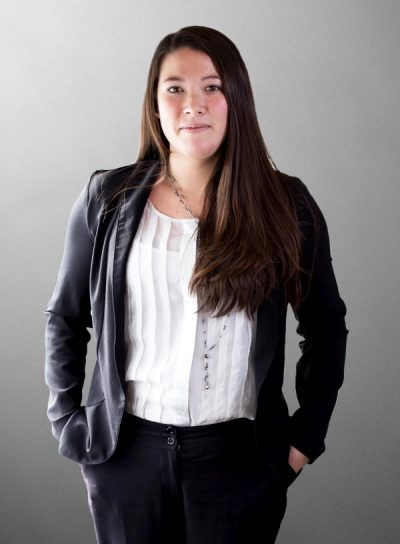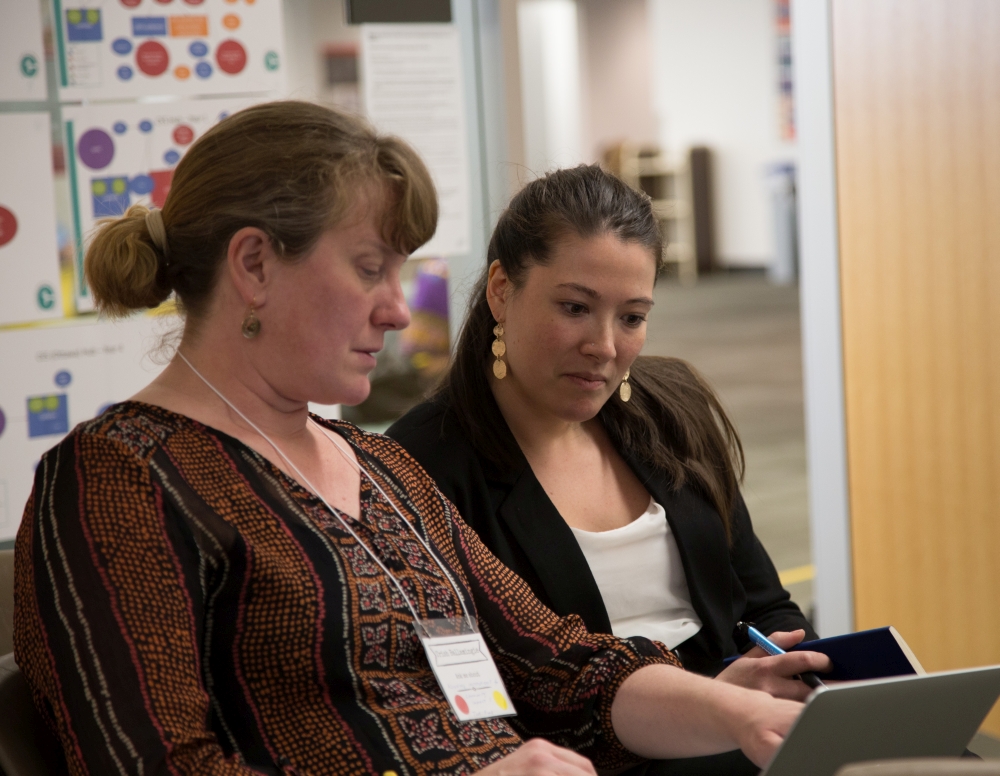Story by Kate Wetterstrand, CFICE Administrative Research Assistant; Podcast written and recorded by Kira Locken, CFICE Communications Volunteer
When Natasha Pei got a Research Assistantship (RAship) with the Poverty Reduction hub of CFICE in 2013, she never could have predicted the impact it would have on her career trajectory. She attributes her success, in large part, to the community-first skills she gained as a result.
Listen to the podcast below, or continue scrolling to read the full story! Download a PDF of the podcast transcript.
 “When I first started studying social work, I thought I was going to get into child protection services,” explained Natasha. “Learning about systemic issues facing society through my Master’s, combined with my community engagement work with CFICE, broadened my horizons about how I could contribute to addressing the larger, structural barriers people face every day.”
“When I first started studying social work, I thought I was going to get into child protection services,” explained Natasha. “Learning about systemic issues facing society through my Master’s, combined with my community engagement work with CFICE, broadened my horizons about how I could contribute to addressing the larger, structural barriers people face every day.”
While many RAships entail completing literature reviews, assisting with data entry, and occasionally contributing to academic articles, Natasha’s RAship with CFICE was focused on studying and building the skills necessary for creating deep and meaningful partnerships between communities and academics.
“Like many students starting in community engagement work, I was eager to share what I’d learned in university to help solve community issues,” said Natasha. “My experience with CFICE taught me how to listen to and learn from the expertise in the community, and how to develop long-term relationships that lead to far greater change.”
The experience gave Natasha skills that set her apart from her fellow Master’s students.
“I was a core member of the team,” Natasha recalled fondly. “I helped organize meetings. I liaised with multiple community and academic partners from across Canada, presenting our research information back to the community members to discuss implications with them. Where other students were reading about community engagement models like collective impact, I was actually part of collective impact projects. It was a lot of responsibility but it was a great experience.”
Pei graduated her Master’s of Social Work degree with a job waiting for her at Tamarack Institute’s Vibrant Communities, a core partner of CFICE’s Poverty Reduction Hub. And her CFICE experience didn’t stop there.
“I transitioned straight from being an RA for CFICE’s Poverty Reduction hub to being the hub’s community co-lead! It was great because I brought continuity to the projects, and I’ve been able to apply what I’ve learned, both in my position at Vibrant Communities, as well as with my ongoing work as part of CFICE.”
Through her co-lead position, Natasha has continued studying effective ways to maximize the benefits of community-campus engagement for the community. She has also witnessed firsthand the impact of using a community-first approach in engagement, especially in her position as Community Animator with Vibrant Communities.
“You can actually see the difference this work makes for our community partners. So often in social work, you put your heart and soul into helping people escape poverty or homelessness. With this job, I am in the privileged position of helping people pass knowledge back and forth so people can build the work from each other, and do work more effectively to move policy and systems, as a result of our conversations.”
When asked how CFICE’s community-first ethos has changed her expectations and methods as a community partner, Natasha responded, “When we’re engaging other community members, asking them to share their experience and expertise, we take the time to truly listen to and learn about the issues that they are facing. We are prepared to meet them where they’re at, rather than imposing our own assumptions.”
Natasha encourages other students to learn community-first practices as well.
“For students working with communities, it’s incredibly important to start by looking inwards, to value the community’s perspective, and then identify how your role can best contribute to bigger relationship and overall goals.”
Become more community-first!
To learn more about how to make your work more community-first, check out our list of actions for all community-campus engagement practitioners!
